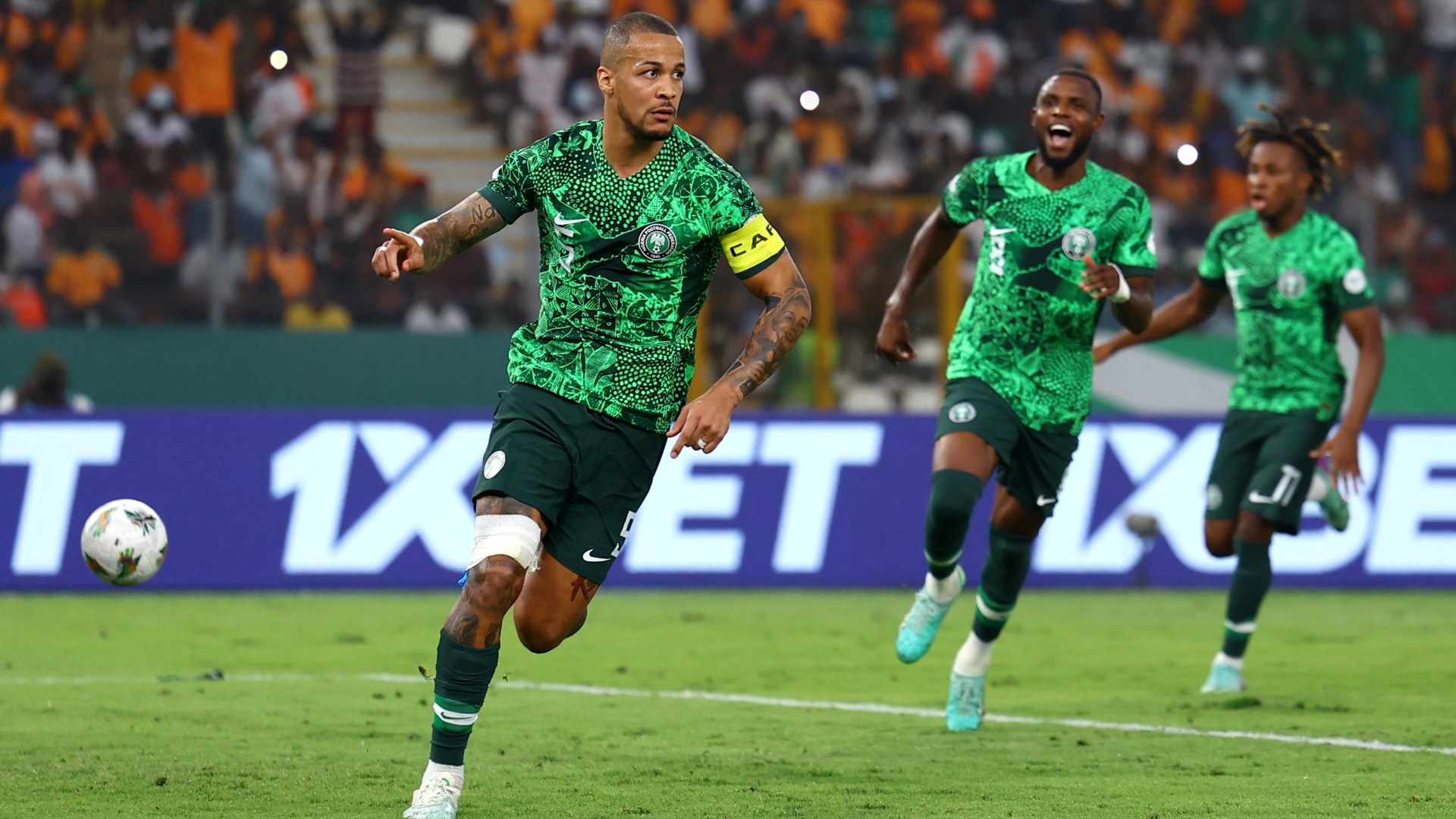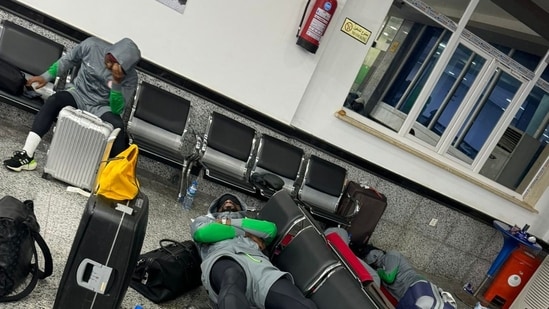The Nigeria national football team has made headlines after announcing a boycott of their Africa Cup of Nations (AFCON) qualifier against Libya due to what they described as “inhumane treatment” during their travel arrangements. The team’s ordeal began when they were stranded at an airport for an astonishing 20 hours, leading to frustration and disappointment among players and staff alike

Source:- bbc news
The situation unfolded when the team arrived at the airport for their scheduled flight to Libya. Delays and logistical issues left the players waiting for hours without proper communication or support from the relevant authorities. Reports indicate that they were not provided with adequate food or comfortable accommodations during the extended wait, leading to rising tensions and dissatisfaction within the squad.
Source:- news 18
In a statement, team captain Ahmed Musa expressed the players’ frustrations, emphasizing that the lack of respect for their time and well-being was unacceptable. “We are professionals, and we deserve better treatment. Our focus should be on representing our country with pride, not dealing with such distressing situations,” he said. Musa highlighted that the players felt disrespected and dehumanized, which ultimately affected their mental readiness for the upcoming match.
As a result of these issues, the Nigerian Football Federation (NFF) decided to support the team’s decision to boycott the match. In an official statement, the NFF expressed their concern over the treatment of the players and stressed the importance of ensuring that athletes are treated with dignity and respect, both on and off the field. The federation also vowed to take up the matter with the relevant authorities to prevent such incidents from happening in the future.
This boycott comes at a critical time for Nigerian football, as the team seeks to qualify for the prestigious AFCON tournament. The implications of the boycott could extend beyond just this match, potentially impacting team morale and performance in future fixtures.
The incident has sparked discussions about the treatment of athletes, particularly in African football, where logistical challenges and lack of resources are common. Many are calling for reforms to ensure that players are adequately supported and that their rights are upheld. As the Nigeria football team stands firm in their decision, they have brought attention to the pressing issues faced by athletes and the need for systemic changes in sports administration.
Share your views in the comments

